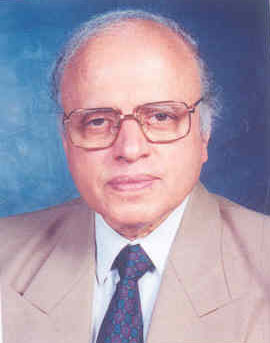Mankombu Sambasivan Swaminathan, eminent geneticist and agricultural scientist who transformed Indian agriculture through the ‘Green Revolution’ was born on 7th August 1925 at Kumbakonam, Tamil Nadu. Read more on the father of the Green Revolution in India for the IAS exam.
| Get an edge in one of the most toughest competitive exams in the country by visiting the UPSC Previous Year Question Papers page.
Enhance your preparation for the UPSC exam by checking the following links: |
Facts about M S Swaminathan

- Swaminathan’s father M K Sambasivan was a surgeon and a follower of Mahatma Gandhi. He took part in the Swadeshi movement and the temple entry movement in Tamil Nadu. This instilled the idea of service into Swaminathan’s mind at a young age.
- After matriculating from a local school in his native town, he took admission in a medical school. But, the Bengal famine of 1943, in which about 3 million people starved to death, changed his mind and made him take up agricultural research.
- He completed a graduation course in zoology from the Maharaja’s College in Trivandrum before enrolling in the Madras Agricultural College. Here, he secured a bachelor’s degree in agricultural science. After this, he went to the Indian Agricultural Research Institute (IARI) in New Delhi to pursue his post-graduation in plant breeding and genetics.
- After securing the PG, he cleared the UPSC exam and qualified for the IPS. He, however, chose to take up a UNESCO fellowship at the Wageningen Agricultural University in the Netherlands to continue his research on potato genetics.
- He then moved on to the Cambridge University School of Agriculture and earned a PhD in 1952. After this, he went to work as a researcher at the University of Wisconsin. However, he returned to India in 1954 to work here. He continued his research at the IARI.
- Between 1972 and 1979, he was the Director-General of the Indian Council of Agricultural Research (ICAR). While there, he formed the National Bureau of Plant, Animal, and Fish Genetic Resources of India.
- He also played a role in the transformation of the Forest Survey of India (FSI).
- In 1979, he was appointed the Principal Secretary of the Agriculture Ministry of the Indian government.
- The Green Revolution refers to a series of steps and technology transfers to the agriculture sector that caused a great surge of farm productivity. The steps taken included developing high-yield varieties of grains, using fertilisers and pesticides, developing pest-resistant crops, using hybrid seeds with enhanced genetics, and so on. Although the Green Revolution was not limited to India and was applied to many developing countries, it was most successful in India. Worldwide, the father of the Green Revolution was American agronomist Norman Borlaug; in India, the honour is bestowed on Swaminathan, for his pioneering role in this field.
- Because of these gigantic efforts, India, where famines were commonplace during the Raj, has not seen a single famine since the application of the ‘green revolution’.
- From 1981 – 85, he was Independent Chairman of the Food and Agriculture Organisation (FAO).
- From 1984 – 90, he was the President of the IUCN (International Union for Conservation of Nature and Natural Resources).
- From 1988 – 96, he was the President of the World Wide Fund for Nature–India.
- In 2001, he was Chairman, Regional Steering Committee for the India – Bangladesh joint Project on Biodiversity Management in the Sundarbans World Heritage Site.
- He has held many posts in many international organisations. He also advised the Indian government on agriculture-related issues several times. He initiated the concept of trusteeship management of Biosphere reserves. He executed the Gulf of Mannar Biosphere Reserve Trust.
- He has won many international and national awards and honours.
- He received the Shanti Swarup Bhatnagar Award in 1961 for biological sciences. The GOI bestowed the Padma Vibhushan on Swaminathan in 1989.
- In 1971, he received the Ramon Magsaysay Award for Community Leadership. He also received the UNESCO Mahatma Gandhi Gold Medal in 1999.
- The government constituted the National Commission on Farmers (NCF) in 2004 with Swaminathan as the chairman, in order to address the pressing issue of farmers’ suicides in India.
- He founded the M. S. Swaminathan Research Foundation, an NGO that develops and promotes economic growth strategies, especially for rural women.
- MS Swaminathan passed away on 28 September 2023, in Chennai aged 98.
- In February 2024, the Government of India announced the Bharat Ratna for Dr Swaminathan in honour of his great achievements and contribution towards making India self-reliant in food grain production.
Relevant Links
For more articles and UPSC preparation material follow the links given in the table below:
Related Links
| UPSC Books | UPSC Monthly Current Affairs Magazine | NCERT Notes For UPSC |
| Golden Revolution | Abdul Kalam | Finance Commission of India |
| Athar Amir khan | Udaan Scheme | Free UPSC Study Material |

Comments